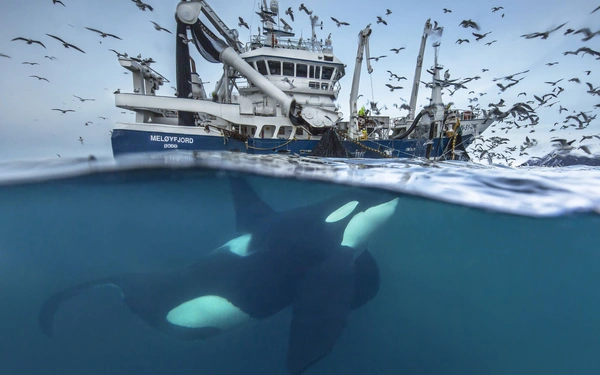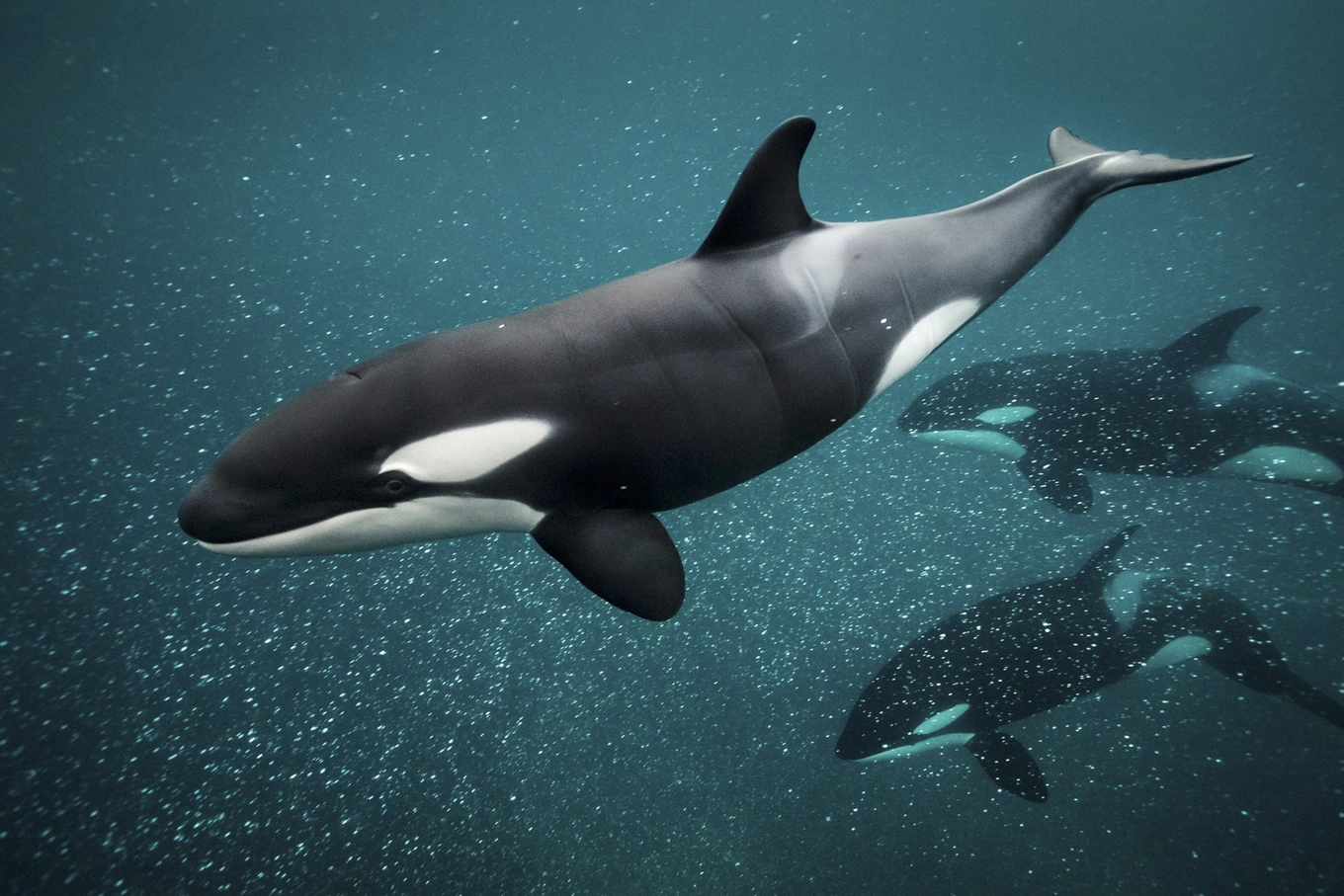A yacht longer than 15 meters was attacked and sunk by a pod of orcas off the coast of Morocco, marking the 26th such incident involving orcas targeting yachts in the region in 2024. The incident occurred last weekend near the Strait of Gibraltar, approximately 22 kilometers from the Moroccan coast, when a pod of orcas suddenly attacked the yacht named Alboran Cognac.

At the time of the attack, two people were on board. They reported that the orcas caused severe collisions, damaging the rudder and puncturing the hull, allowing water to flood the vessel. The passengers quickly contacted rescue services for assistance. The rescue team instructed them to wear life jackets, activate the GPS locator, and prepare for an emergency evacuation.
Spanish and Moroccan rescue forces collaborated to search for the victims. The two passengers were later spotted and rescued by an oil tanker before the rescue team arrived. The yacht, severely damaged, sank shortly after the orca attack.
The yacht was owned by a Spain-based tourism company. The victims were two tourists who had rented the yacht for a vacation and fishing trip. Their identities have not been disclosed.
Orca attacks on yachts in the Mediterranean are not uncommon. Over the past four years, at least 15 orcas have interacted with hundreds of vessels off the coasts of Portugal, Spain, and Morocco. Some smaller yachts have been sunk by orca attacks, while others sustained damage from orcas deliberately ramming the hull or biting with their teeth.
According to GTOA, a group studying orca behavior in the region, an average of 168 orca-vessel interactions have occurred annually in the Mediterranean since 2020. As of early 2024, 26 cases of orcas attacking or colliding with yachts have been recorded.

The reason behind these orca attacks remains unclear. Some scientists suggest the orcas may be playfully curious about the yachts they encounter. A few propose that the behavior could be a source of enjoyment for the orcas. However, a controversial hypothesis suggests the attacks may be acts of revenge.
This theory, proposed by some researchers studying orca behavior, posits that female orcas with negative past experiences, such as injuries from boat propellers, may target vessels in retaliation. As highly intelligent marine mammals capable of learning hunting behaviors from one another, other orcas may mimic these attacks. This hypothesis, however, is not widely accepted.
Some scientists argue that labeling the orcas’ actions as “attacks” is misleading, as their intentions are not fully understood. They worry that framing the behavior as aggressive could provoke retaliation from fishermen or seafarers, harming the orca population, which is already declining.
“Science has yet to explain why Mediterranean orcas target vessels, though we believe it’s likely playful or social interaction rather than predatory or aggressive intent,” GTOA researchers explained. “When navigating the sea, we are in the territory of marine life. We should not punish wildlife for their actions in their natural habitat,” they added.
Scientists note that the risk of orca encounters is highest from May to August. They advise vessels to avoid areas frequented by orcas and, if encountered, to continue moving toward shore into shallower waters rather than stopping.
Orcas inhabit all the world’s oceans, including the frigid waters of the Arctic and Antarctic. Despite their name, orcas are not whales but the largest species in the dolphin family. Adult males measure 6–8 meters and weigh 5.9–6.5 tons, while females measure 5–7 meters and weigh 3–4 tons. With powerful, sharp teeth, orcas are formidable predators.
As intelligent, agile carnivores with advanced hunting skills, orcas prey on sea lions, seals, whales, and great white sharks. They sit atop the ocean’s food chain, with no natural predators. Humans are their only significant threat.
Despite their size and predatory prowess, orcas pose little danger to humans. No recorded cases exist of orcas attacking people in the wild. Many scientists rank orcas among the world’s 10 most intelligent animals, suggesting they are smart enough to recognize humans as non-prey.